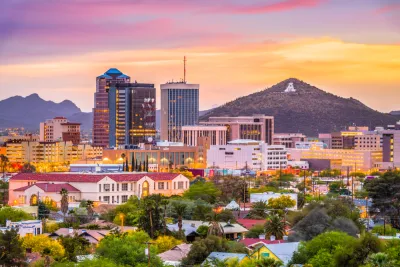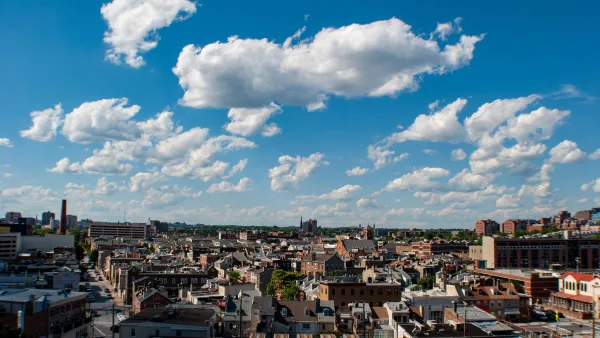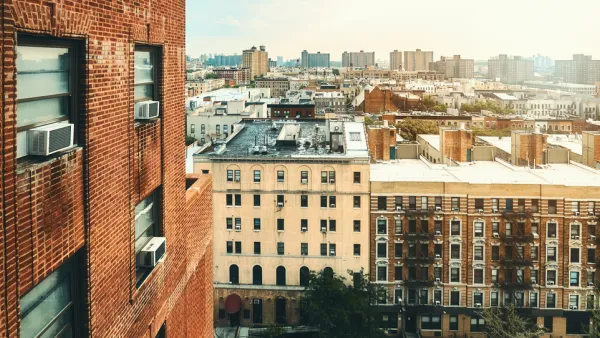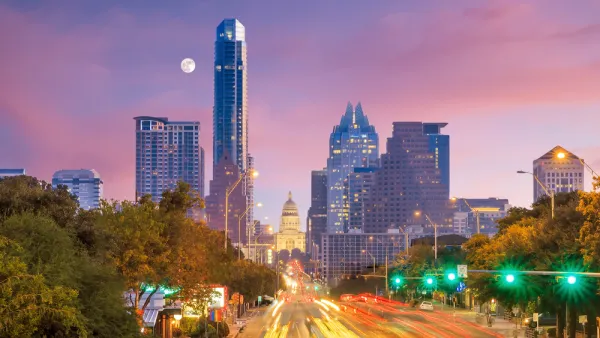Median rent in Tucson rose by 30 percent since a year ago, prompting fears of displacement among many residents struggling to afford housing.

“Rents are going up all over Arizona, as they are across the country, but Tucson, once considered sleepy and affordable, has seen a particularly painful spike.” As Brenda Muñoz Murguia reports in Phoenix Business Journal, “The median rent in Tucson in June was $1,795, up 30% from June 2021, according to Zillow data as of publication.” This is leading many longtime residents to relocate farther from the city center to more affordable neighborhoods.
“The redevelopment and push for upscale housing has put particular pressure on west Tucson and downtown.” According to the article, “Older neighborhoods that traditionally were lower income and predominantly Hispanic are transitioning to market-rate housing, pressured by new developments in nearby areas, with apartments renting for as much as $3,000 a month.”
Murguia points to one major factor impacting the desirability of these areas: the city’s “Government Property Lease Excise Tax, or GPLET, a tool that gives the city authority to grant incentives to build in particular areas.” Since its inception, Tucson has entered into 24 GPLET agreements, some of which converted affordable senior housing to luxury rentals. It should be noted that a 2021 study by University of Arizona professor Gary Pivo “found that GPLET projects were not the cause of gentrification, mainly because they constitute a small part of downtown development. However, it also said the GPLET program could do more to help people and businesses being displaced.” Pivo’s report “said GPLET should look for opportunities to create affordable housing for people who earn less than $35,000 a year.” Anecdotally, the article features the stories of several Tucson residents who struggle to afford housing and have had to move as rents rose.
FULL STORY: Rent hikes, downtown boom spur gentrification of older Tucson neighborhoods

Analysis: Cybertruck Fatality Rate Far Exceeds That of Ford Pinto
The Tesla Cybertruck was recalled seven times last year.

National Parks Layoffs Will Cause Communities to Lose Billions
Thousands of essential park workers were laid off this week, just before the busy spring break season.

Retro-silient?: America’s First “Eco-burb,” The Woodlands Turns 50
A master-planned community north of Houston offers lessons on green infrastructure and resilient design, but falls short of its founder’s lofty affordability and walkability goals.

Test News Post 1
This is a summary

Analysis: Cybertruck Fatality Rate Far Exceeds That of Ford Pinto
The Tesla Cybertruck was recalled seven times last year.

Test News Headline 46
Test for the image on the front page.
Urban Design for Planners 1: Software Tools
This six-course series explores essential urban design concepts using open source software and equips planners with the tools they need to participate fully in the urban design process.
Planning for Universal Design
Learn the tools for implementing Universal Design in planning regulations.
EMC Planning Group, Inc.
Planetizen
Planetizen
Mpact (formerly Rail~Volution)
Great Falls Development Authority, Inc.
HUDs Office of Policy Development and Research
NYU Wagner Graduate School of Public Service




























